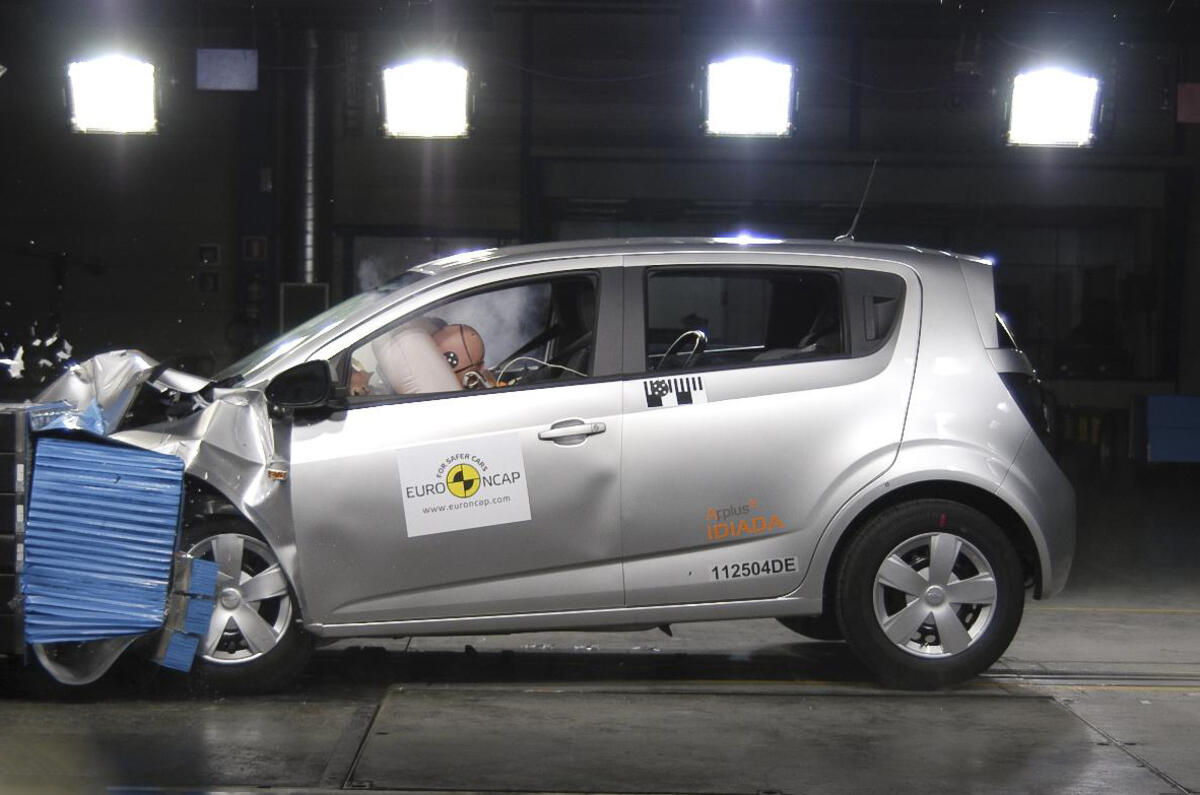Latin road safety leaders have accused General Motors and other major car brands of deliberately removing safety features from vehicles in order to increase profit margins in South America.
In a meeting hosted by Latin NCAP in Washington, USA, several members of road safety organisations expressed their anger at GM, claiming that it has actively chosen to sell models of its vehicles without basic safety equipment to the Latin markets, despite selling those same models elsewhere with airbags and electronic stability control systems as standard.
Several GM models have achieved zero or one star ratings in Latin NCAP crash testing, with many more from other key manufacturers receiving similarly dismal results.
The Chevrolet Aveo, which is Mexico’s best selling car with 80,000 units sold in 2015, falls well short of crash safety standards with zero stars to its name. Yet one recent survey said that 97% of Aveo owners in Mexico believe their cars are of a safe standard, illustrating just how unaware the population is of this problem.
Another GM product, the Chevrolet Sail, has recently received zero stars due to its "unstable structure", and perhaps surprisingly, Ford's Ford Ranger - which is pick-up truck - achieved just three stars despite its large size. Latin NCAP said the average result came thanks to the car's lack of ESP. In other markets, the system is standard fitment.
Latin NCAP tests are less strict than the equivalent crash tests in Europe and North America, emphasising just how unsafe these vehicles are, and one speaker went so far as to call GM ‘General Manslaughter’. American consumer advocate Ralph Nader said that cars with no airbags for the Latin markets were built alongside cars with ESP and airbags for North America. He called this an act of “wilful manslaughter”.
Mexico currently has more than 25-million vehicles on its road, five times more than three decades ago. But 17,000 people die each year in road accidents, which is 10 times more than the UK where there are nearly 15-million more cars on the road.
However, a lot of the deaths can be attributed to lower driving standards and dangerous road infrastructure, but experts say unsafe vehicles account for the vast majority.
Though GM isn’t the only car maker with a bad safety record, it is the worst of the major manufacturers in this region. David Ward, Global NCAP Secretary General, has now written to Mary Barra Chairman and CEO of General Motors calling on her company address safety concerns in Latin America.
Ward said: “GM has chosen to exploit the weak application of minimum crash test standards in Latin America to provide a version of the car that the company would be unable to sell either in Europe or North America.





Join the debate
Add your comment
A less salacious headline
General Motors, along with most other manufacturers in the region, are producing cars that meet or exceed every legal requirement at a price point that makes them competitive in the market they are sold in.
While GM, and other car manufacturers, agree that in cars with more strict safety legislation they sell similar vehicles with more legislature-mandated safety equipment, all the manufacturers that responded to our request for comment say they would be happy to fit all necessary safety equipment legislation required.
Easy to make that mistake...
Interesting perspectives